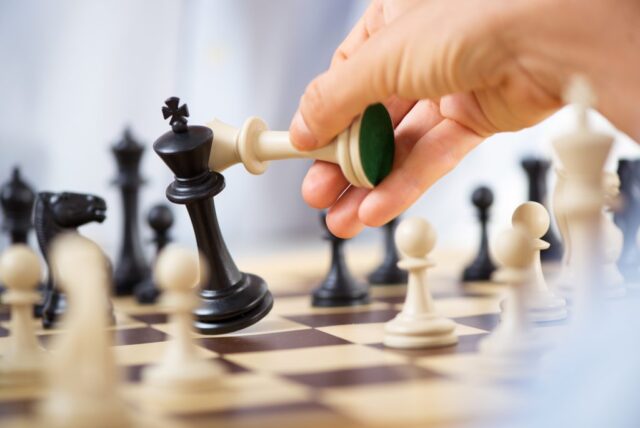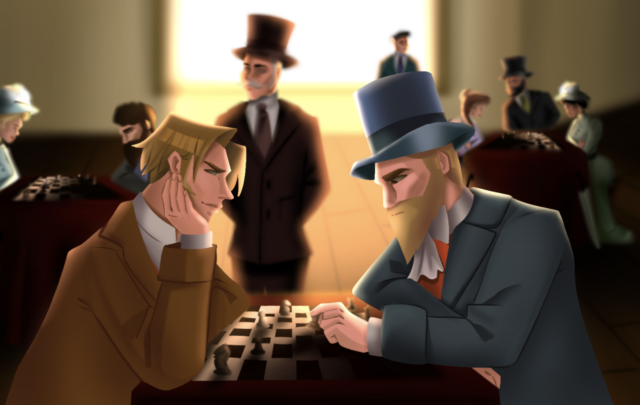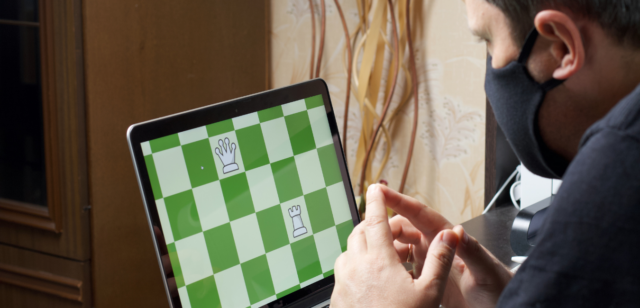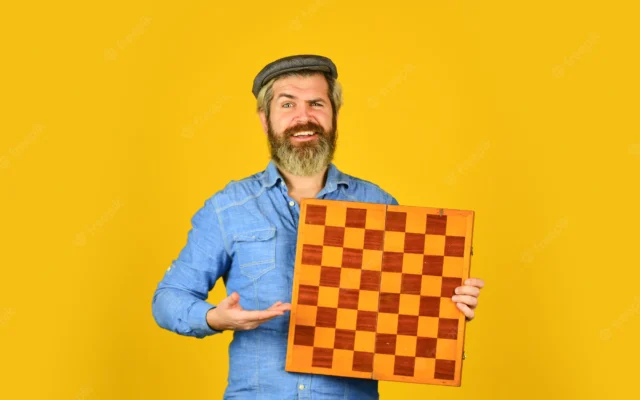
Chess is a popular board game that has been around for centuries. It can be used to improve problem-solving skills, strategic planning, and more. If you’re looking to up your game and increase your knowledge of the game, read on for some tips on how to do just that. There are plenty of resources available online, as well as in books and magazines. With enough dedication and effort, you can become a skilled player in no time.

Overview of Chess
Chess is a complex game with many different strategies that can be employed to win. Here are the most common rules of chess:
-The board is divided into 64 squares, called ranks, from the lowest to the highest. The white player starts in the bottom left rank, and the black player starts in the top right rank.
-A pawn can only advance if it moves two squares towards its destination. If it moves one or fewer squares, it is captured by the opponent’s piece on its original square.
-A king can only move along the row or column next to its original square. If it moves to an opposing pawn or another king, it is captured and removed from the game.
-When two similar pieces (e.g., two knights) are positioned next to each other, they fight each other using a series of moves called combat. The winner of the combat captures the other piece.
One of the best ways to improve your skills is to study different strategies and theories. There are many books and websites that offer advice on how to play better. You can also watch games between top players to get better insights into how they think about the game.
In addition to studying chess, it’s important to practice regularly. Playing against someone who is weaker will help you improve faster than if you were playing against an equal or stronger opponent. If you don’t have someone to play against, there are many chess puzzles available online that can give you some exercise while training your brain at the same time. You can also sign up with Alberto Chueca to learn all about the game.
Here are some tips to get you started:

1. Increase Your Time Spent Playing Chess
The first step to becoming a better player is to spend more time playing the game. If you can find a way to fit in 30-50 minutes of chess each day, you’ll start seeing improvement quite quickly.
2. Master the Basics of Chess
Once you’ve increased your time spent playing, it’s important to focus on mastering the basics of the game. This means learning how to move your pieces, develop attacks and defend against them, and pay attention to strategic decisions that will help you win games.
3. Learn from Other Players Online or in Person
While practicing at home is great for learning the basics of the game, sometimes it’s helpful to get advice from other players online or in person. There are plenty of forums and clubs where beginner and intermediate players can meet up and compete in tournaments together.

Pawns and their Movement
Pawns are the most important pieces in the game of chess and their movement is critical to victory.
Make sure your pawns are moving effectively. Pawns move best when they are positioned in front of other pieces so that they can block enemy attacks and protect their allies. Use your pawns to attack enemy squares, castles, or key pieces.
Don’t be afraid to sacrifice a pawn. If it is necessary to move a pawn out of its original position, do so carefully so that it doesn’t get captured by the opponent. Pay attention to the surrounding area. When making a move with a pawn, be sure to look around the board to see if there are any possible threats or opportunities that you hadn’t considered before.
Be creative with your pawn moves. Sometimes the best way to achieve an objective is through indirect means rather than through direct attack. For example, moving a pawn across the board diagonally can trap an opponent’s piece without requiring direct confrontation.
Bishops and their Movement
Each piece has its own set of abilities and can be used to control different areas of the board. It’s important for players to understand how bishops move and what their abilities are so that they can use them effectively on the board.
Bishops are considered one of the most versatile pieces in the game. They have the ability to move diagonally. Bishops also have one special ability called “flanking.” This means that if a bishop is adjacent to another piece (either on its left or right), it can attack that piece with impunity. By using flanking properly, bishops can quickly take control of the board and neutralize enemy threats.
Players who want to improve their chess skills should learn how to use bishops effectively. by understanding their range, moving abilities, and flanking power, they’ll be able to dominate their opponents on the chessboard.

Strategies for Chess Play
There are plenty of strategies to help you win, but one of the most important is learning how to play chess tactically.
Tactics can be broken down into three main areas: opening moves, middle-game moves, and endgame moves. Each of these areas has specific goals that need to be met in order for you to win the game.
The first step in playing this game tactically is understanding the pieces on the board and their abilities. For example, bishops can only move diagonally, but they can attack multiple enemies at once. Knowing this information will help you plan your opening moves accordingly.
Another important aspect of playing tactically is keeping track of your opponent’s moves. This allows you to anticipate their next move and make counter-moves accordingly.
Finally, remember that chess is a strategic game, and never lose sight of your ultimate goal: winning the game. Always think about what steps will lead you closer to victory and take those steps without hesitation.
Conclusion
Achieving excellence in chess requires dedication and skill, two things that can be improved with the right instruction. Whether you are a beginner just starting to learn the game or an experienced player looking to improve your skills, come find out how our Chess Academy can help you reach your goals. We provide quality classes and individual coaching to ensure that each student succeeds.









